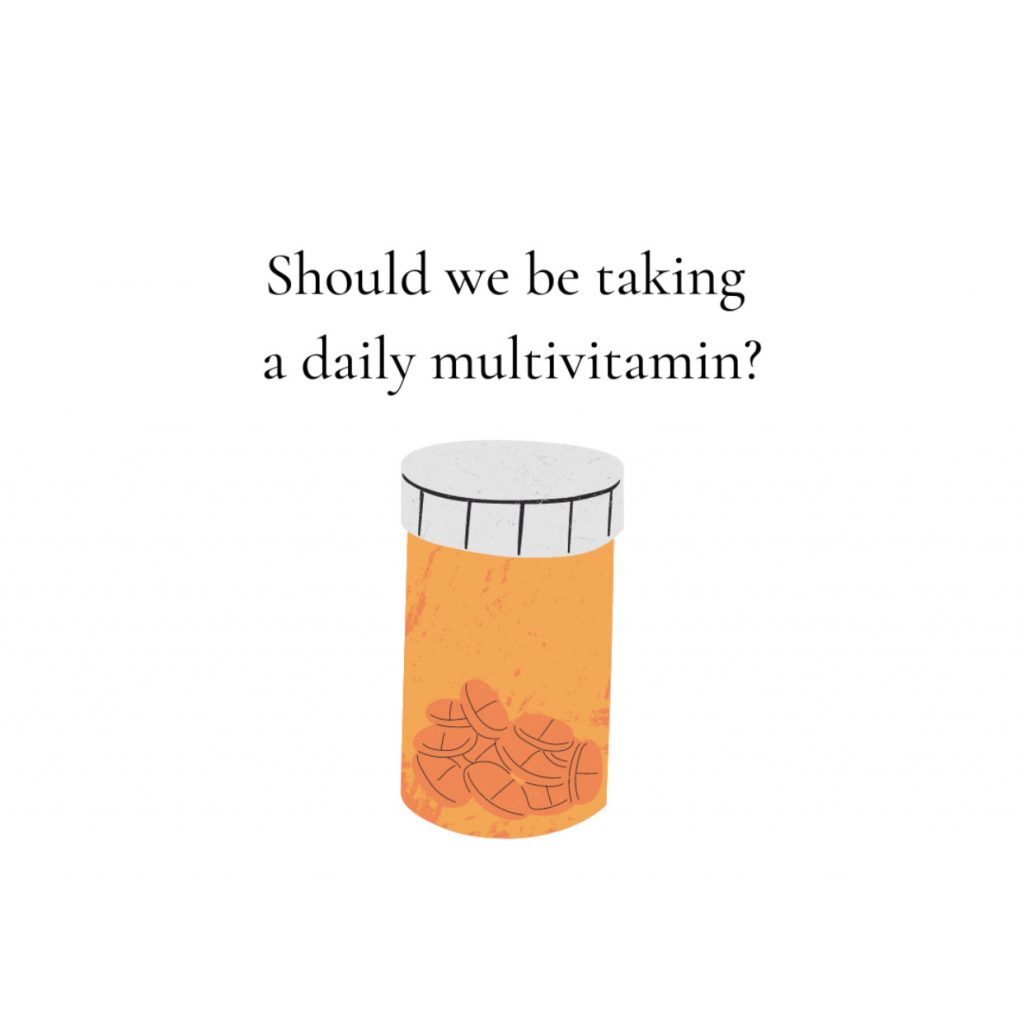(Subscribe on Spotify, Apple Podcasts, Deezer, or Google Podcasts)
Every year, we spend BILLIONS of dollars on vitamins, mostly without really knowing if we need them, or if they’re doing us any good. They are the most commonly used supplement in the world.
In this ep we take a look at the current scientific research behind some of the most popular ones, and cover:
- Whether multivitamins contain the same stuff
- How sailors helped us discover vitamins.
- The scientific evidence for and against taking one-pill for everything
- Whether it’s more beneficial to take isolated vitamins or one big multi.
- Can they help you live your healthiest and longest life?
- What a ‘therapeutic dose’ means
- What the AUST L number is and why you need to look for it on packaging
- Which trusted brands Sal will be prescribing as a Clinical Nutritionist in Australia.
Thank you so much for listening. We’re so stoked you’re here and would be SO grateful if you could leave a review on Apple podcasts, that way we can inspire and educate even more people together.
P.S. Please seek advice from a qualified practitioner before changing your health regimen.
P.P.S. If you’re looking for a high-impact marketing opportunity for your business and are interested in becoming a sponsor of the Wellness: Fact or Fiction podcast, please e-mail wellnessfactorfiction@gmail.com for more information.

Continue Listening…
Episode Resources:
Reporting non-compliant advertising to the TGA (for Australian Vitamins): https://www.tga.gov.au/advertising-enforcement-and-outcomes
The science:
Bailey RL, Fulgoni VL 3rd, Keast DR, Dwyer JT. Examination of vitamin intakes among US adults by dietary supplement use. J Academy Nutrition Dietetics. 2012;112(5):657-663, e4Google Scholar
Bailey, R. L., Fakhouri, T. H., Park, Y., Dwyer, J. T., Thomas, P. R., Gahche, J. J., Miller, P. E., Dodd, K. W., Sempos, C. T., & Murray, D. M. (2015). Multivitamin-mineral use is associated with reduced risk of cardiovascular disease mortality among women in the United States. The Journal of nutrition, 145(3), 572-578. https://doi.org/10.3945/jn.114.204743
Block G, Jensen CD, Norkus EP, et al. Usage patterns, health, and nutritional status of long-term multiple dietary supplement users: a cross-sectional study. Nutr J. 2007;6:3017958896PubMed
Conner M, Kirk SF, Cade JE, Barrett JH. Why do women use dietary supplements? The use of the theory of planned behaviour to explore beliefs about their use. Soc Sci Med. 2001;52(4):621-63311206658
Foote JA, Murphy SP, Wilkens LR, Hankin JH, Henderson BE, Kolonel LN. Factors associated with dietary supplement use among healthy adults of five ethnicities: the Multiethnic Cohort Study. Am J Epidemiol. 2003;157(10):888-89712746241
Harrison RA, Holt D, Pattison DJ, Elton PJ. Are those in need taking dietary supplements? a survey of 21 923 adults. Br J Nutr. 2004;91(4):617-62315035689PubMed
Macpherson, H., Silberstein, R., & Pipingas, A. (2012). Neurocognitive effects of multivitamin supplementation on the steady state visually evoked potential (SSVEP) measure of brain activity in elderly women. Physiology & behavior, 107(3), 346-354. https://doi.org/10.1016/j.physbeh.2012.08.006
Rock CL. Multivitamin-multimineral supplements: who uses them? Am J Clin Nutr. 2007;85(1):277S-279S17209209PubMed
Rosenberg IH. Challenges and opportunities in the translation of the science of vitamins. Am J Clin Nutr. 2007;85(1):325S-327S17209220PubMed
Sesso, H. D., Christen, W. G., Bubes, V., Smith, J. P., MacFadyen, J., Schvartz, M., Manson, J. E., Glynn, R. J., Buring, J. E., & Gaziano, J. M. (2012). Multivitamins in the prevention of cardiovascular disease in men: the Physicians’ Health Study II randomized controlled trial. JAMA, 308(17), 1751-1760. https://doi.org/10.1001/jama.2012.14805
Watkins, M. L., Erickson, J. D., Thun, M. J., Mulinare, J., & Heath, C. W., Jr (2000). Multivitamin use and mortality in a large prospective study. American journal of epidemiology, 152(2), 149-162. https://doi.org/10.1093/aje/152.2.149